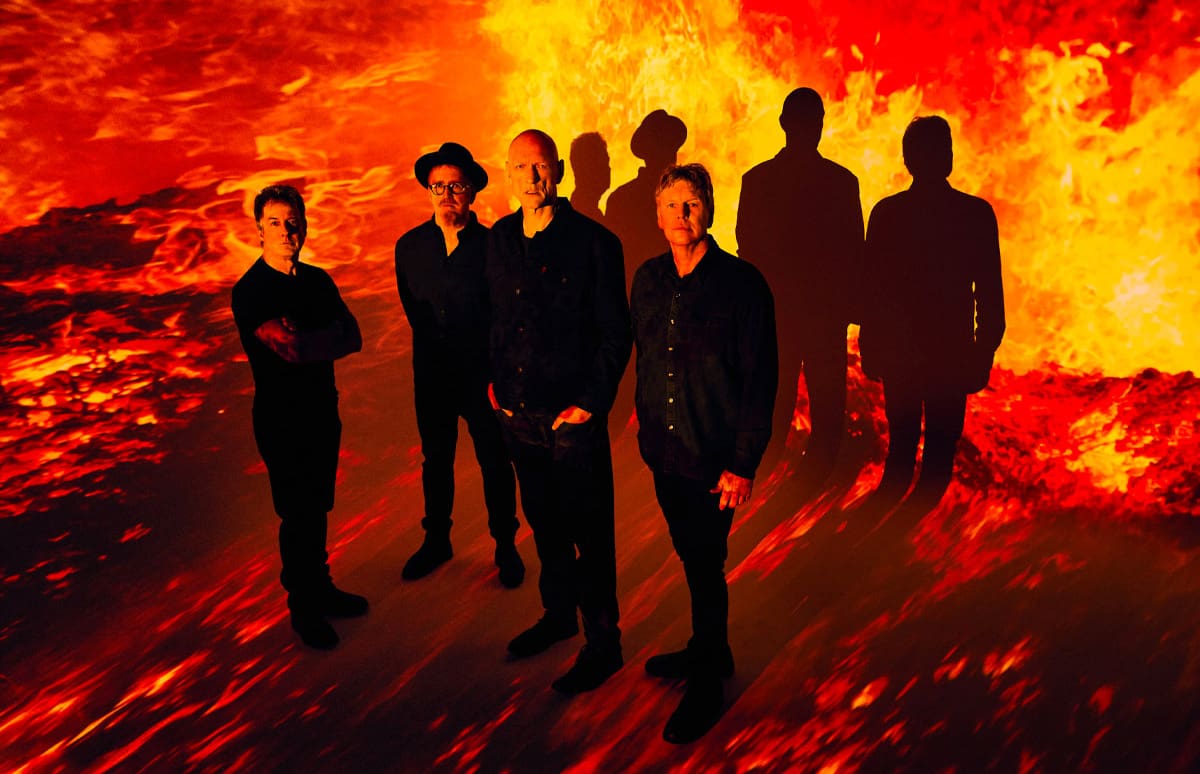It was a miserable day in the HSC cycle when Mr Mikalic from P.E. romped into our English classroom. Standing over 6ft tall, his lisp gave his booming voice a boyish quality. The class chattered excitedly as he tossed aside a stack of worksheets prepared by our teacher. We were a class consumed daily by ATAR calculators and essay structures. In the tradition of any renegade substitute teacher, he sat atop the table, swinging his size 12’s onto the chair in front of him.
“How many of you have heard of Midnight Oil?”
Prepared for the blank stares that met him, Mr Mikalic turned back to the desk and picked up a different bundle of papers. “These are the lyrics to some of their songs,” he said.
I don’t remember which songs he had printed out, just that they were in a font that looked typewritten. Most of all, I remember his expression. His face lit up with more glee than when he made us play dodgeball with basketballs.
It wasn’t just his generation who had a reverence for the prog-rock legends. Midnight Oil was the catalyst for the Greenpeace generation: young people who felt they’d been shaken out of a middle-class stupor and awoken to the realities of environmental degradation, social injustice, and political complacency.
This year, Midnight Oil is back with the album Resist. It’s a curtain call on the last 46 years of music, a parting message and dire warning for the future. While an environmentally-charged punk ethos dominates, decisive guitar chords craft a distinct identity in what shapes up to be a twelve-track manifesto. Raw vocals synergise with organ solos and sincere lyrics, calling upon all generations to act.
The album opens with ‘Rising Seas’. Peter Garrett’s distinctive warble rises off the lullaby-like intro, a cross-generational siren call that we are about to face the mirror of truth — and probably won’t like what we see. Before long, the song crashes into the reliable mixture of guitar and synth that the band have maintained from their heritage, this time with modern catchwords like “climate-denying”.
Track three takes us on a botanical journey through the Tarkine Rainforest. The weeping acoustic guitar riff provokes reflection upon the consequences of neglecting nature.
Garrett’s drawl creeps into ‘At the Time of Writing’: a critique of climate action lethargy in Australia.“Our ocean moat protects us, our friends will surely come,” he sings. Stripped down and sonically palatable, all attention is on the lyrics. While the message of 1987’s ‘Beds Are Burning’ became obscured by the fame of its iconic sound, this song centres its didactic message, spotlighting the climate crisis from a post-apocalyptic perspective.
‘We Resist’ is the most haunting and pensive track. What feels like a forward march builds anticipation but fizzles out, reflecting the crossroads we are at in the climate emergency. Echoey drums punctuate heavily distorted guitar, creating a constant push and pull between light and dark notes. Bridged with electronic sounds from the 80s, a piano arpeggio brings us back to clarity before ending on a resounding “only if we resist.”
The record closes out with ‘Last Frontier’; thunder and a cockatoo screeching precedes news anchors reporting on the climate crisis in different languages. Much like in ‘The Barka-Darling River’, another track on the album, this song presents a nuanced political perspective as to why nationalist responses alone cannot fix global issues. Orchestral in its own right, the album closes out with sophisticated lyrics and an assortment of instrumentals, proving that Midnight Oil are elder statesmen of music. They leave us not with a full stop, but a question mark.
Though the album is a farewell, it doesn’t feel like goodbye. The subject matter Midnight Oil covers is too prescient, too vital, to feel like we are saying farewell to this band, much less these issues. Instead, their music will continue to resound at protests, marches, picket lines, and pubs. As long as our beds are burning and our oceans rising, Midnight Oil’s music will always be relevant. Let’s hope that one blessed day, it no longer is.





